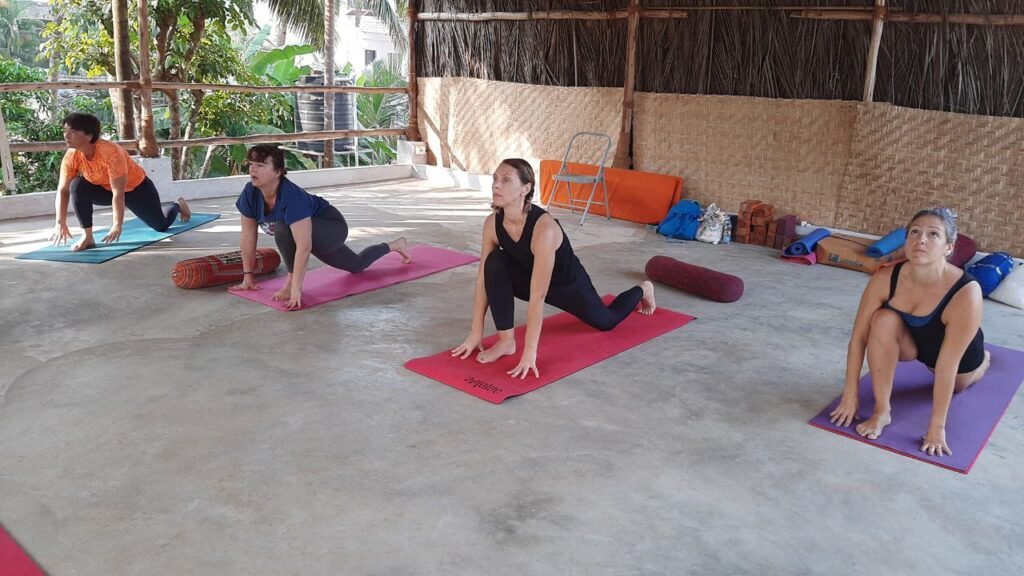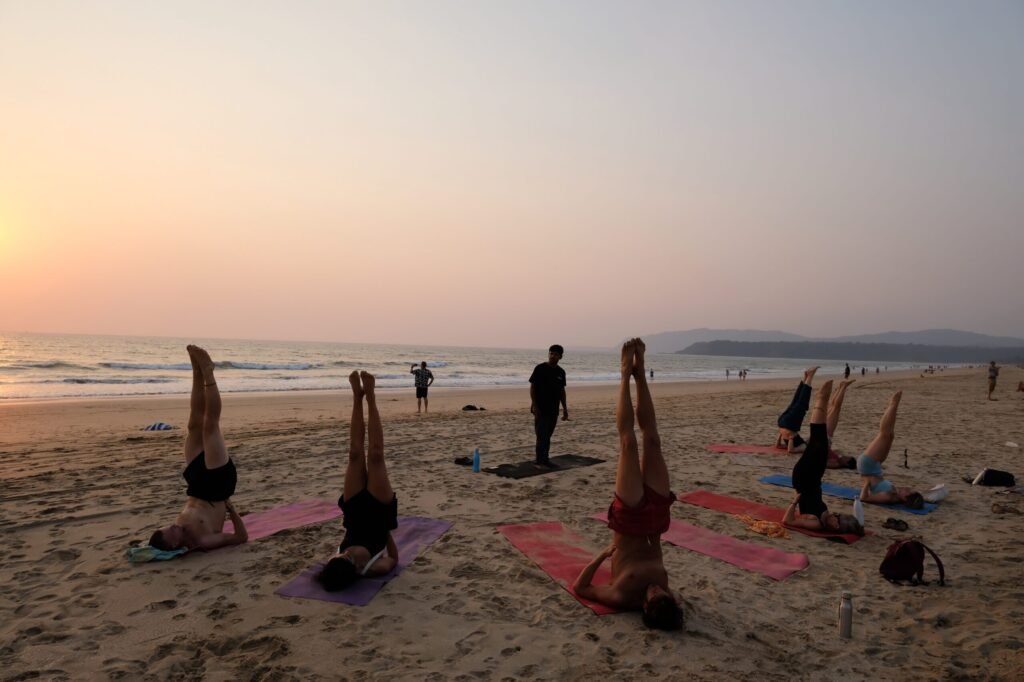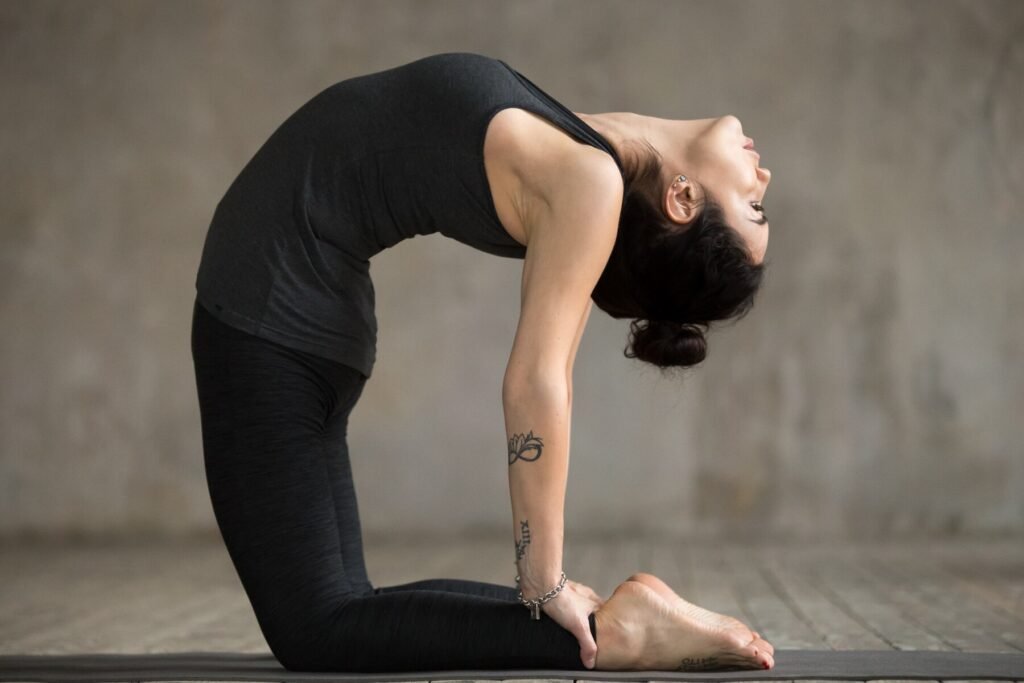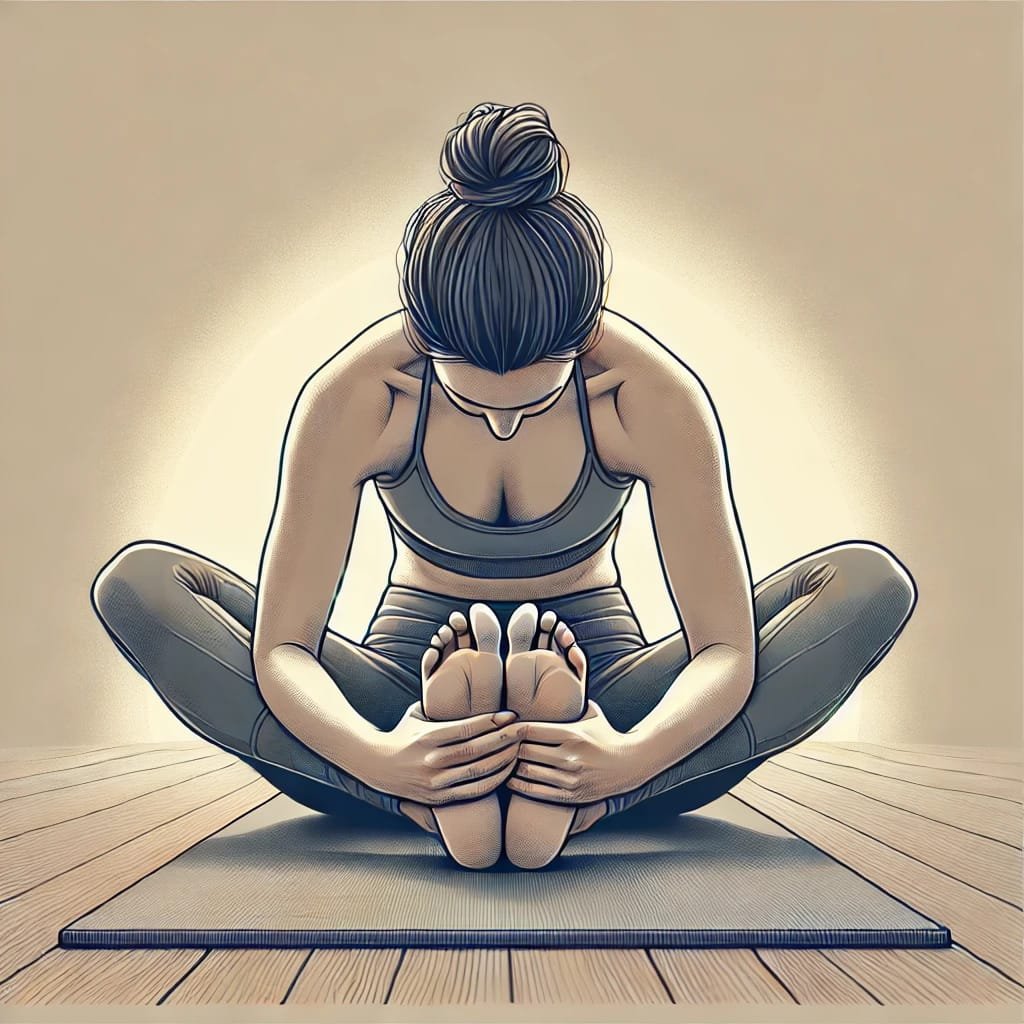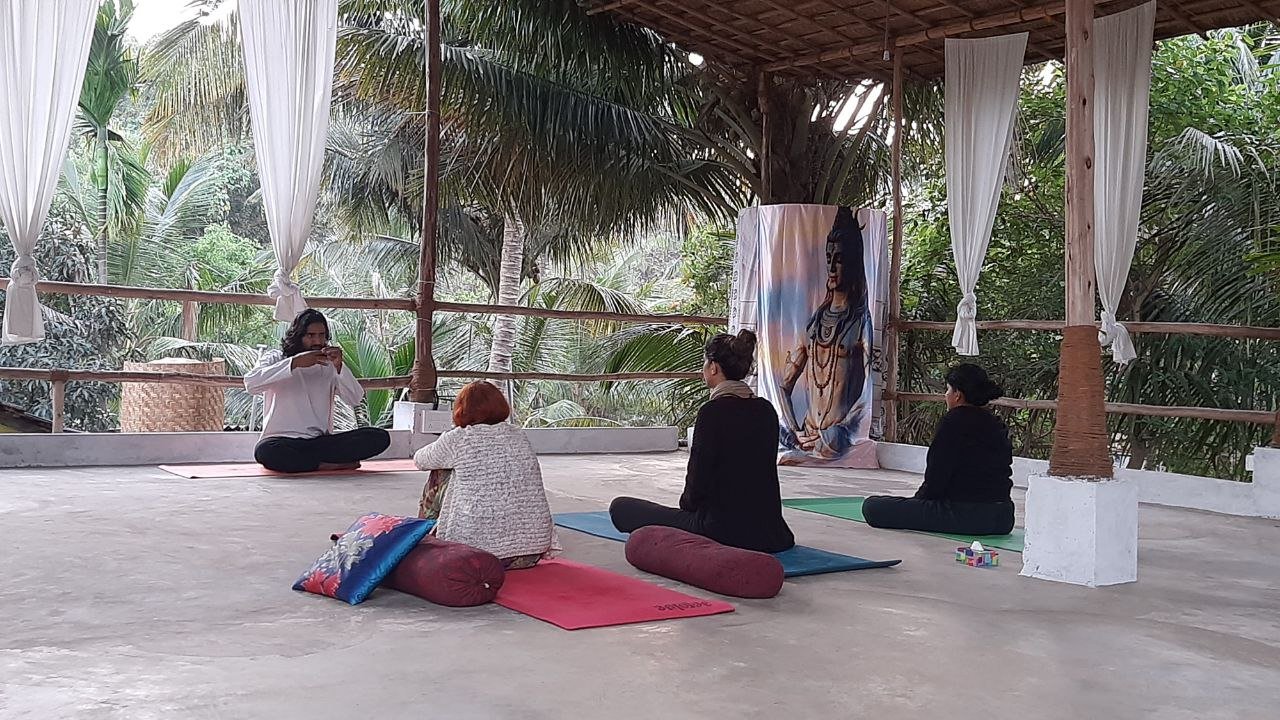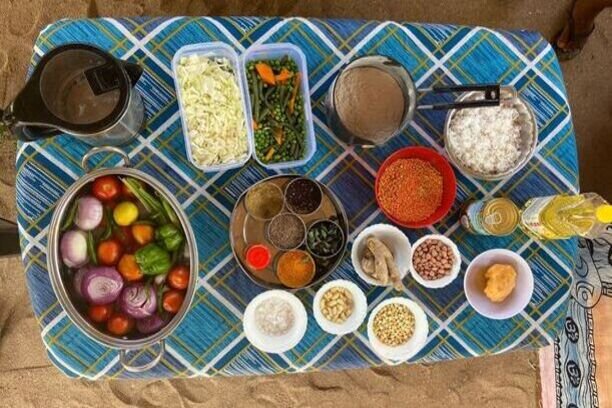Choosing the perfect yoga mat is an important step in your journey whether as a beginner level yogi or an advanced yoga practitioner. A yoga mat is a yogi’s world, irrespective of where they practice, whether in a room or under the bright blue sky. Hence, choosing the perfect yoga mat can make or degrade your experience as a yogi. With the wide range of yoga mats in the market, it can be overwhelming to pick the right one. Let’s discuss and find the right mat that suits your needs and comfort as well. Whether you go to the best yoga school in Goa or any other destination for affordable yoga retreats or luxury yoga retreats, selection of the right yoga mat is crucial.
So, let’s get ready to pick and roll out the right one.
BASED ON YOUR BODY TYPE
The right choice of yoga mat in terms of size and thickness depends a lot on the type of body you have. If you have softer joints that get sore easily then you need to go with a thicker yoga mat or mats with padding that can minimize the ground reaction. As a standard, yoga mats are ⅛ inches thick and can be as thick as ¼ inches or more. If you have any joint issues or get cramps more often, then it is best to go with a yoga mat with a padding or a ⅙ inch thickness mat.
For standing poses, a thinner mat is ideal. As for the length, a standard yoga mat is about 68 inches in length ideal for a height of up to 5.6 feet.
BASED ON YOGA STYLE YOU WANT TO PRACTICE
The selection yoga mat differs with yoga style as well. If you are unsure of which yoga style you are going to pursue in the long run, then go with a cheap yoga mat that you can discard later. Yoga classes like Vinyasa, Ashtanga that are performed in a flow or complicated movements, it is better to go with a mat that would help you retain balance in your body and would help retain your posture. Going with a thinner yoga mat is recommended that is made from anti-slip material like rubber.
For restorative yoga and yin yoga classes or styles similar to these, you can go with a thicker mat for seated yoga poses and overall comfort of the body.
If you are doing Hot Yoga, then consider a non-slip yoga mat.
BASED ON THE PLACE OF YOGA PRACTICE
The choice of yoga mat depends a lot on the place you are going to practice. For example, if you are just going to practice at home or at a studio you normally go to, then you do not need to consider the weight of the mat. You can go with a sturdy mat rather than a lightweight one. If you are on a traveling tour, then consider a lightweight mat that you can carry anywhere with ease. Alternatively, you can keep two yoga mats, one for regular practices and a lightweight one for yoga tours.
CHOOSING THE RIGHT MATERIAL YOGA MAT
The PVC mats are one of the most commonly available mats in the market. However, these mats are not recommended by the yogis as PVC (polyvinyl chloride) may be a carcinogenic substance. It is also non-recyclable which goes against the ethics of a yogi.
Instead, try a rubber mat made from natural rubber. You can easily find it in the market. Rubber mats are sturdy as well.
You can also explore yoga mats with extra padding made from foam and an outer covering of a natural fabric. Such mats are ideal for sitting and lying-down yoga poses.
If you are more eco conscious, then you can try out the natural yoga mats made from natural fibers such as hemp, cotton or jute.

BASED ON THE RIGHT TEXTURE
Yoga mats come in different textures as well. Non-stick mats have a rough texture in comparison with flat mats. While these can irritate your skin and are not ideal for lying down yoga asana practices, these are ideal for standing yoga poses and conditions where you are prone to sweating more.
If you prefer smooth textures, then there is nothing like a sturdy PVC mat. You can also opt for eco-friendly mats as these mats have a comparatively smooth surface too. You can look out for brands that create non-PVC eco-friendly yoga mats.
For yoga retreats in Goa, India or any other tropical yogic destinations, it is best to go with a mat that is anti-slip and is made from natural fabric or from rubber to soak up sweat easily and does not hinder your practice during persistent humidity in the air.
Keep cleaning accessories such as a cloth wipe and disinfected spray packed with the yoga mat within the cover itself, so you can wipe it clean after the practice session. Doing this would ensure the longevity of the mat and also keep it fresh.
Go with a mat that is easy to carry and store as well, that is lightweight enough to carry along for classes and can be rolled easily as well. Buy a yoga mat after trying it at the store. Roll it and unroll a few times to check out its sturdiness and flexibility.
Check out Our Instagram Handle : @GoaYogashala

